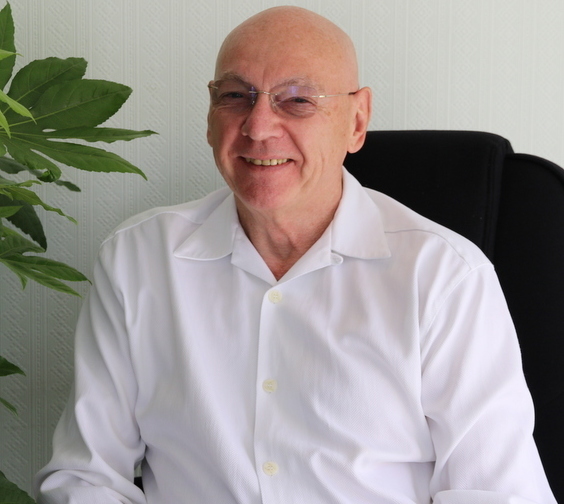Emotional Eating ?
The Science of Emotional Eating
How To Overcome One Of The Biggest Barriers To Weight Loss With Hypnotherapy

Hypnotherapy
or call me on 01932 341055
Research finds, managing the emotions behind eating is one of the fundamental routes to weight loss, this is easy to do with hypnotherapy.
Addressing emotional eating can double the chances of weight loss success.
I have developed a unique approach for you to manage these emotions, teaching you how to use hypnotherapy, most of the time we do not have to address food at all.
This unique approach can help you to step away from the emotions that control your eating.
Unfortunately, many weight loss programs do not even address psychological factors like this. The tendency is to focus on diet and exercise, without considering the impact of the mind.
It is the emotional connection with food that can drive overeating, this is what hypnotherapy can address.
Understanding this link,

whilst addressing the frustration that we experience after emotional eating, will put you in control.
It is common for emotional eaters to cheer themselves up with food.

Comfort foods can share a link with happier times.
During research, a client who took part in a Temple University study that targeted emotional eating. successfully lost 17 pounds and has kept it off.
The client said:
“The program does not’t just help you identify when you eat.
It helps you recognize triggers that encourage you to eat, to help you break that cycle of reaching for food every time you feel bored, or frustrated, or sad.
I still use the skills I learned in the study.
I’ve learned to say, ‘I will not allow this emotional episode to control my eating habits.'”
One study has found that learning to control emotional eating could almost double the odds of successful weight loss.
Dr Edie Goldbacher, at Temple’s Universities, Center for Obesity Research, said:
“Emotional eating may be one reason why people don’t do as well in behavioral weight loss groups, because these groups don’t address emotional eating or any of its contributing factors.”
Do You Find That:
You eat between meals ?
You eat when you are tired ?
You eat when you are stressed ?
You eat when you are busy ?
You eat when you are feeling down ?
You eat to reward yourself for having a good day ?
You eat because you have lost weight ?
You eat when you are bored ?
You could be emotionally eating.
This needs a little consideration:
Most eat differently at Christmas, birthdays and celebratory meals.
However, if you are overweight and been on several diets and still looking for the answer, you could be emotionally eating.
Hypnotherapy Can Help You
Hypnotherapy
Can Help

Feeling bad about yourself doesn't help
Emotional eating (psychological eating) can lead to obesity with the related health problems.
The benefit is, it can help you manage your emotions.
Dopamine, cortisol and serotonin are the three hormones that play a roll in emotional eating and food addiction.
Cortisol, the stress hormone, regulates your stress response whilst regulating your body's use of carbohydrates and fat proteins.
Stress can lead to a compulsion to eat unhealthy foods
Most emotional eating is triggered by stress or boredom but this varies with the individual.
Recent research indicates, calorie-dense foods triggers fat accumulation whilst inhibiting the primary stress response.
A further controlled research group, found when isolated they reached for comfort food, emotionally reminding them of strong emotional relationships previously experienced.
Emotional Eating Can Lead To food Addiction
In the short term emotional eating tends not to lead to a pathology however, reaching for comfort foods on a regular basis can lead to significant physical and psychological health problems.
The issue being, emotional eating can prevent you from addressing your true emotions and sources of stress.
It might be said that eating to avoid facing feelings is similar to smoking to deal with stress or becoming an alcoholic to numb the pain.
Serving a similar purpose, to cigarettes and alcohol, emotional eating feels better than working the issue through.
Free Initial Consultation

Losing Weight Is Is To Do With Managing Feelings

When We Manage Our Feelings We lose The Drive To Eat
Hormones That Facilitate Emotional Eating
The Neurotransmitter dopamine is a critical player in all forms of addiction, including food addiction.
The Stress hormone cortisol and the neurotransmitter serotonin also play important roles.
Cortisol is our main stress hormone, triggering the fight-or-flight or freeze response, additionally regulating how our bodies use carbohydrates, fats and proteins.
When we’re stressed or anxious, our bodies flood with cortisol, and we are pre-programmed to want carbs, craving sugary, fatty, salty foods.’
Dopamine, a neurotransmitter associated with learning about rewards comes into play, as we look forward to something good happening, like eating comfort foods, we are offered a surge of dopamine, we then move into a reward phase, all accompanied with serotonin, triggered by tryptophan, an amino acid necessary to produce serotonin, found in such foods.
Tryptophan is famously associated with turkey, also found in cheese.
Carbs including chocolate are linked to serotonin spikes.
Food Versus Feelings
The act of eating gives us something to do, it fills our time, gives us a way to procrastinate. Eating a lot of comfort food lowers our stress response. Comfort foods tend to be unhealthy, cake, biscuits,chocolate, ice cream and chips being among the more common.
With time, eating offers emotional relief; a temporary distancing from emotional discomfort and lowering our experience of stress.
There is a conscious and unconscious emotional discomfort. Sometimes we understand what we are feeling, sometimes we do not, we just feel uncomfortable or unhappy, we don't need to look into this when we can just eat.
Often this leads to shame, remorse, regret, guilt.
Exchanging the original discomfort for the familiar feelings that come after emotional eating.
Perhaps It Is Time To Change

Hypnotherapy Can Help You
Working Together

You can reclaim control

You will wonder why you did not do this sooner
How to Separate Your Emotions From Your Eating
It’s important to separate your emotions from your food intake.
The real reason for food is to nourish us, giving the energy and health to enjoy our lives.
If we use food consistently for any other purpose we start to experience a change in shape and develop a dependency.
Food needs to be filed in our brains under nourishment and occasional pleasure.
When we reach for food the thing to ask is "Am I hungry"?
Wait quietly for the answer.
If we are not hungry what is it that we need at this moment?
Do we need something other than food to address what we’re feeling?
If you find that your search for food is triggered by a negative emotion, we can find a more constructive way to address these feelings. Here we might look at mindful eating, eating in front of the television, is not helpful. sit and concentrate on every mouthful, at least your stomach will register that it has been fed.
What is the point of eating great food whilst we are emotionally distracted?
Eat slowly, not only is this healthy eating advice but if you’re distracted you will feel unsatiated after eating.
The goal to eating is to sit down and really experience that food and its flavors, to be aware that we have eaten. Not to be full, lethargic and tired but no longer hungry.
We Can Help
At this appointment I will be able to asses the best way forward for you.
There are many brief strategic interventions which might be used today, successful therapy understands what the individual requires to change, hence the initial consultation.
Using the correct approach for you, I help you to manage your eating habits, putting you back in the driving seat.
Eating incorrect food is only the symptom, once you start to manage your feelings better everything else can drop into place.

